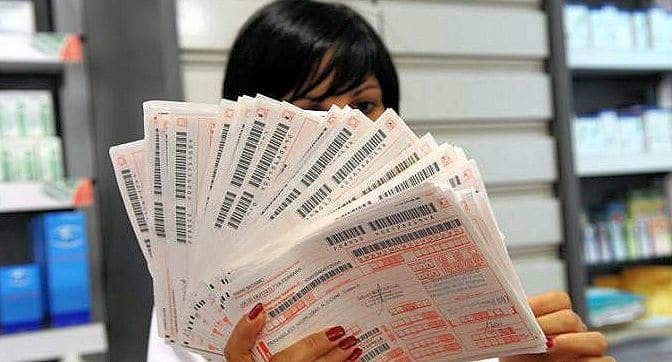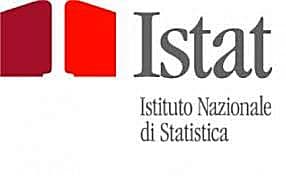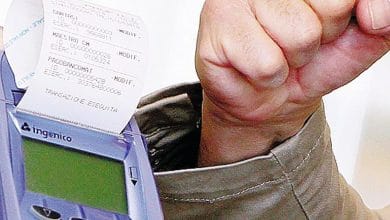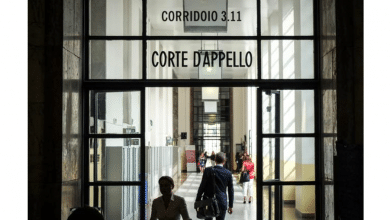
3 million exams a year, but they defend themselves: the waste is elsewhere and it's the specialists who exaggerate. The new Health Pact provides that if general practitioners prescribe medicines or tests considered "useless" or "inappropriate" for a certain pathology, they must be sanctioned by the reference Local Health Authorities: in short, the Local Health Authorities must cut the fees they pay on borrowed.
Of Ilaria Bonuccelli – 30 July 2015 – THE TYRRHENIAN LIVORNO
 A couple of weeks ago - says Enrico Bianchi, a doctor from Livorno - the Region sent the latest anti-waste circular: it is forbidden to prescribe knee MRIs to people over 65, unless "explaining why the exam indispensable or to indicate the name of the specialist requesting it». There are too many Rmn and often they are not needed. Like there are too many CAT scans, ultrasound scans and even cardiological checks. In 2014, 53 and a half million services: 15 Tuscan exams, including newborns.
A couple of weeks ago - says Enrico Bianchi, a doctor from Livorno - the Region sent the latest anti-waste circular: it is forbidden to prescribe knee MRIs to people over 65, unless "explaining why the exam indispensable or to indicate the name of the specialist requesting it». There are too many Rmn and often they are not needed. Like there are too many CAT scans, ultrasound scans and even cardiological checks. In 2014, 53 and a half million services: 15 Tuscan exams, including newborns.
THE EXCESSES
There is therefore no objection to the provision. The ceilings on performance are just right, on "heavy" radiology because there are excesses, also admits the regional president of the Tuscan medical association, Antonio Panti. But first of all, before "putting your hands in the doctors' wallets", sanctioning them for having prescribed tests considered useless, "it would be appropriate to also look at other wastes. Or at least other questionable expenses Like the millions for drugs for terminal cancer patients. We extend their life by a week, maybe a month, but we treat them with drugs that are not decisive. And so – accuses Bianchi – we feed a shameful business». At the expense of the rest of healthcare. Bianchi hasn't just been a doctor for over 40 years. He was also a politician for eleven: president of the city council, when in Livorno, he still commanded the Democratic Party. The same party that today sponsors the "Health pact" which imposes 2.3 billion cuts on the Regions, 140-150 million on Tuscany. It's not just to think of it this way.
DRUGS FROM 80 THOUSAND EUROS
Panti also has concerns about cancer spending in Tuscany at a time when family doctors are in the crosshairs of waste policy. The new Health Pact, in fact, provides that if general practitioners prescribe drugs or tests considered "useless" or "inappropriate" for a certain pathology, they must be sanctioned by the reference Local Health Authorities: in short, the Local Health Authorities must cut the fees recognize them on borrowers.
In Tuscany, in 2014, pharmaceutical expenditure was 1 billion and 188 million (net of vaccines and plasma derived from the regional centre). About half of this expenditure is attributable to hospital drugs «and hundreds of millions are used to treat cancer patients. Now, fortunately, the number of treatable cancer patients. There is, however, still a percentage of tumors that are difficult to attack. These tumors - explains Panti - are also treated with the latest generation drugs that extend life by a few months, but nothing more. And they cost 20-30 thousand euros. There are drugs for the treatment of some forms of leukemia that cost up to 80 thousand euros».
LOW COSTS WITH GENERICS
It is these, therefore, that weigh on "pharmaceutical expenditure - Panti reiterates - more than the 750,000 patients with cholesterol problems that exist in Tuscany". Of course there are many patients, but they can be treated with little: the statins to be prescribed to keep the disease under control «have a low price. Provided you prescribe the "generics", those with an expired patent. Many of us - Panti assures us - do it. Others do not follow these indications and the difference can be seen there: there are patented drugs that cost ten times as much as generics». On average, at worst, the photocopy drug costs 5 times less than the original.
SPECIALISTS UNDER ACCUSED
The problem, however, does not only concern the family doctor. The clothes - according to Vittorio Boscherini, Tuscan secretary of Fimmg, the union of general practitioners - must be tight on hospital doctors, emergency room doctors and specialists: «It is they who in general «prescribe drugs and tests on white inviting patients to request the red prescription for services paid by the national health service from the family doctor. In this way they unload all responsibility on us ». In fact - continues Boscherini - if "we look at the numbers, it is precisely the specialists, from rheumatologists to orthopedists, who have the heaviest hand in the prescription of certain tests for which we register an excess of spending and inappropriateness".
EXAMINATIONS AGAINST COMPLAINTS
The same also applies to emergency room doctors "who, compared to the others, are the ones most affected by" defensive medicine ": they prescribe tests, visits, send patients to specialists to avoid causes", admits Boscherini.
Indeed, Panti accuses one of the causes of the increase in health care expenditure: the growth of litigation. “Parliament – he says – legislates, but does not consider that patients go straight to the magistrate. When this happens the doctor is forced to go to a lawyer. And a lawyer always costs more than the best of doctors. The magistrate, in fact, in the first place, does not stop to evaluate the appropriateness of the doctor's evaluation. If a patient complains about the health service, he is entered in the register of suspects and forced to defend himself ».
ENOUGH EXEMPTIONS FOR THE RICH
A delicate question for sure. Which for Panti must be addressed together with that of the freedom of choice and evaluation of the professional: «In the meantime, it is not right that the responsibility for the excess demand should be passed only on doctors, given the pressures we suffer from citizens, from patient associations, by magistrates. Furthermore, it is right that the work of professionals be evaluated by a commission on a regional basis which also includes doctors who also evaluate possible exceptions to the guidelines, which take into account special cases, distinguishing between over-prescribers and doctors who take into account also of the social context, the age of the patient and various factors when prescribing an examination». Even if - concludes Bianchi - before setting ceilings and intervening on services, the Region could operate in another direction. “It could affect wealthier patients. It is not fair, in my opinion - he concludes - to guarantee exemptions and free examinations for pathologies to those with high incomes. It is one thing to treat a diabetic or an oncological patient or a social pensioner for free, it is another thing not to charge a patient with an income of perhaps 100,000 euros a year».
Inappropriate prescriptions, Boscherini (Fimmg): a matter more for specialists than for Mmg
 "A government provision that is only applied to general practitioners is absolutely unacceptable". Victor Boscherini, Tuscan secretary of Fimmg, enters the debate on the excess of inappropriate prescriptions, raised a few days ago when there was talk of sanctions against professionals who too easily require analyzes and controls. The Minister of Health had specified that: «useless prescriptions cost 13 billion euros every year, however the local authorities bill does not include sanctions, but only common sense measures. We will activate protocols by consulting scientific societies and if the rules thus elaborated for a correct diagnostic prescription are "wrong", there could be sanctions, but absolutely sustainable". Boscherini gives a voice to family doctors who have seemed to be the target of these hypothetical sanctions: «If it is a question of maintaining, through rationalization, a fair and universal national health service, general practitioners are ready. One possible direction is the one followed in the United States with the Choosing Wisely project, in which scientific societies identify a whole series of obsolete or unnecessary tests». However, the Fimmg exponent is not about to point the finger exclusively at general practitioners: «If specialists are not forced to "recipe" on the regional recipe book, it is clear that all disputes would be referred to general practitioners in the area and this too is unacceptable. If a measure is to be taken, it must apply across the board for all categories of NHS professionals». After all, says Boscherini, «the data confirm it: the prescribing appropriateness, both in the pharmacological and diagnostic fields, has certainly in part passed among general practitioners and much less among specialists. And the reasons are clear and obvious: defensive medicine obliges specialists, for example those who work in the emergency room, to carry out a whole series of tests which in different contexts would not be necessary".
"A government provision that is only applied to general practitioners is absolutely unacceptable". Victor Boscherini, Tuscan secretary of Fimmg, enters the debate on the excess of inappropriate prescriptions, raised a few days ago when there was talk of sanctions against professionals who too easily require analyzes and controls. The Minister of Health had specified that: «useless prescriptions cost 13 billion euros every year, however the local authorities bill does not include sanctions, but only common sense measures. We will activate protocols by consulting scientific societies and if the rules thus elaborated for a correct diagnostic prescription are "wrong", there could be sanctions, but absolutely sustainable". Boscherini gives a voice to family doctors who have seemed to be the target of these hypothetical sanctions: «If it is a question of maintaining, through rationalization, a fair and universal national health service, general practitioners are ready. One possible direction is the one followed in the United States with the Choosing Wisely project, in which scientific societies identify a whole series of obsolete or unnecessary tests». However, the Fimmg exponent is not about to point the finger exclusively at general practitioners: «If specialists are not forced to "recipe" on the regional recipe book, it is clear that all disputes would be referred to general practitioners in the area and this too is unacceptable. If a measure is to be taken, it must apply across the board for all categories of NHS professionals». After all, says Boscherini, «the data confirm it: the prescribing appropriateness, both in the pharmacological and diagnostic fields, has certainly in part passed among general practitioners and much less among specialists. And the reasons are clear and obvious: defensive medicine obliges specialists, for example those who work in the emergency room, to carry out a whole series of tests which in different contexts would not be necessary".





